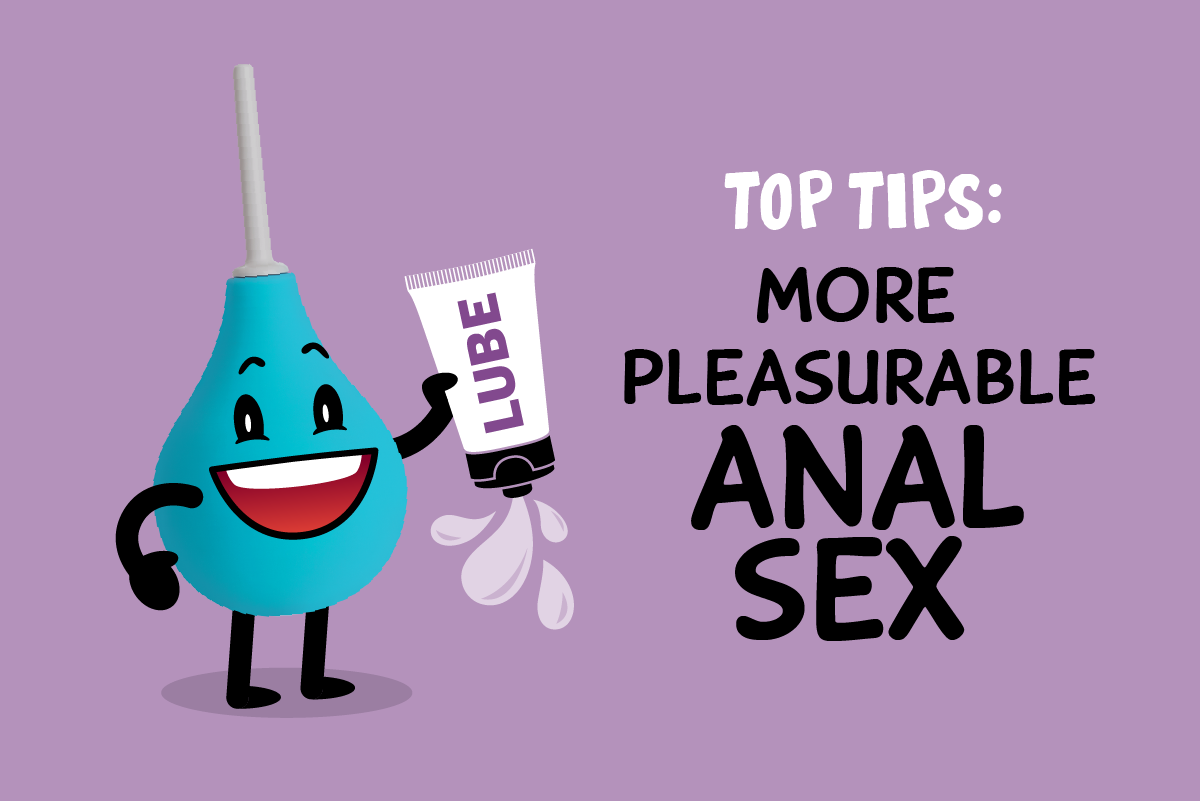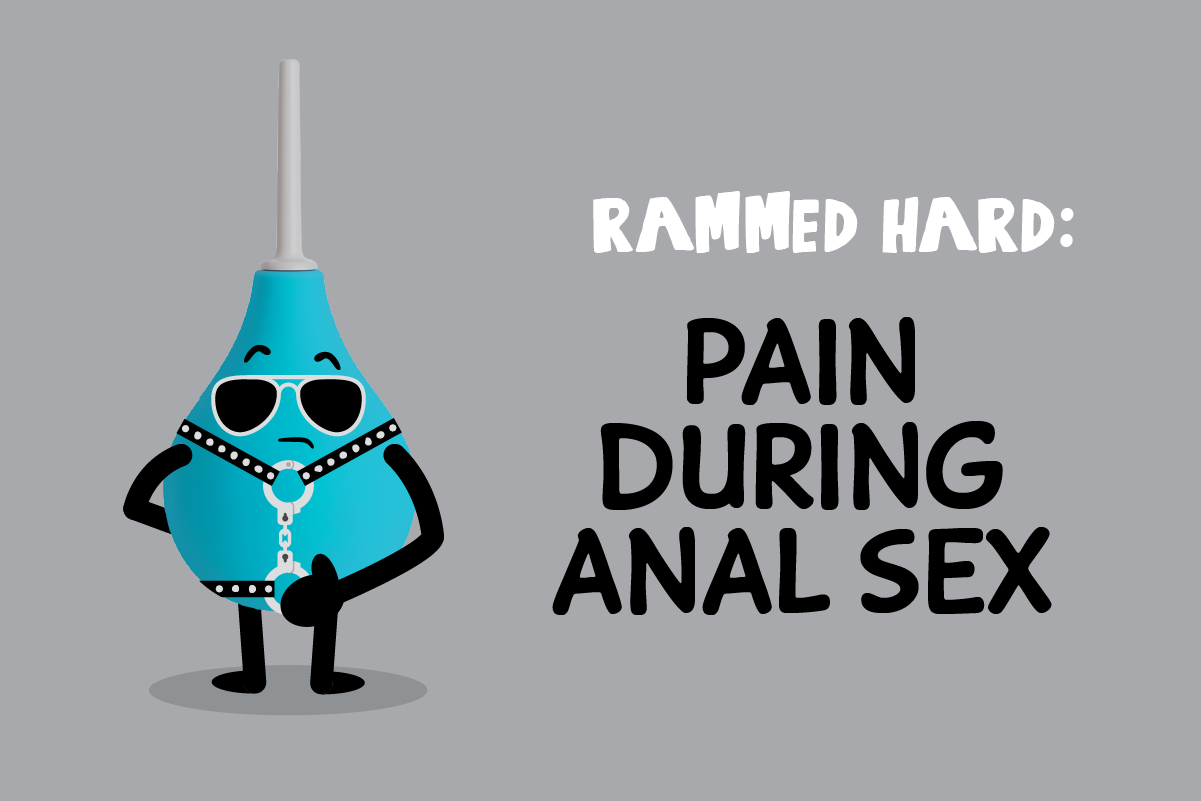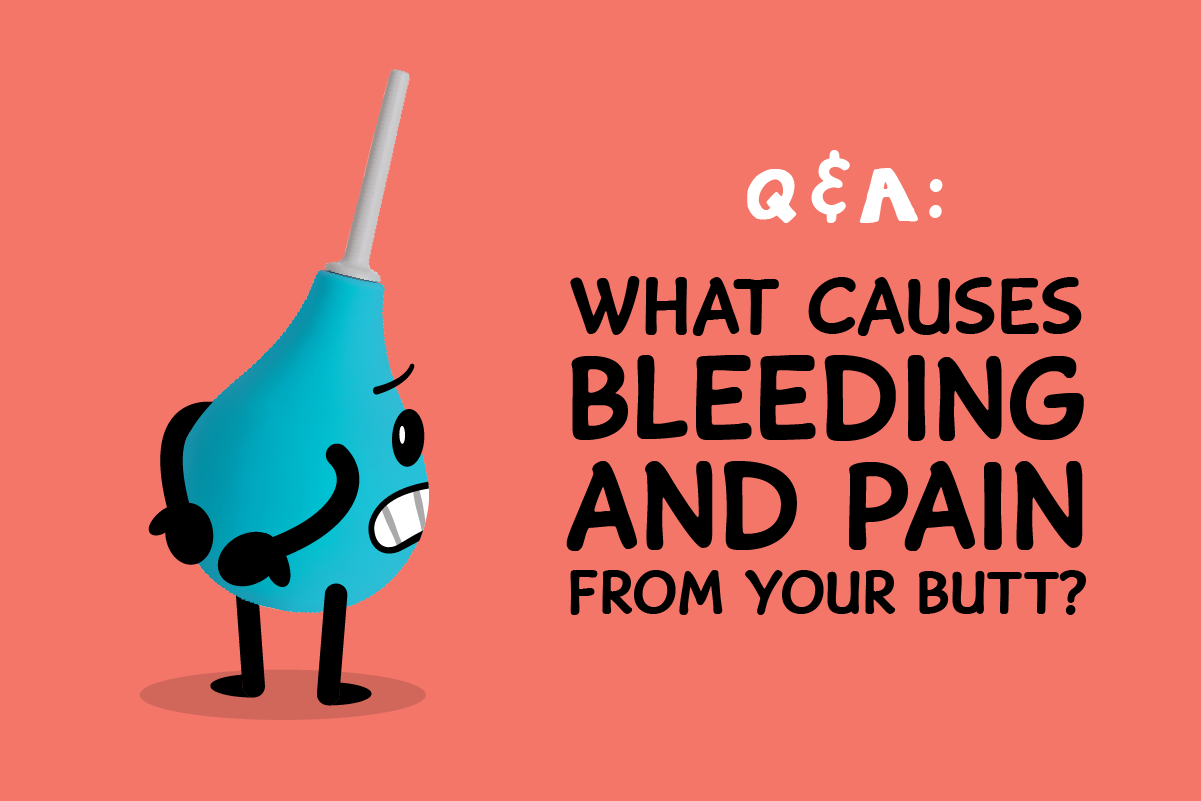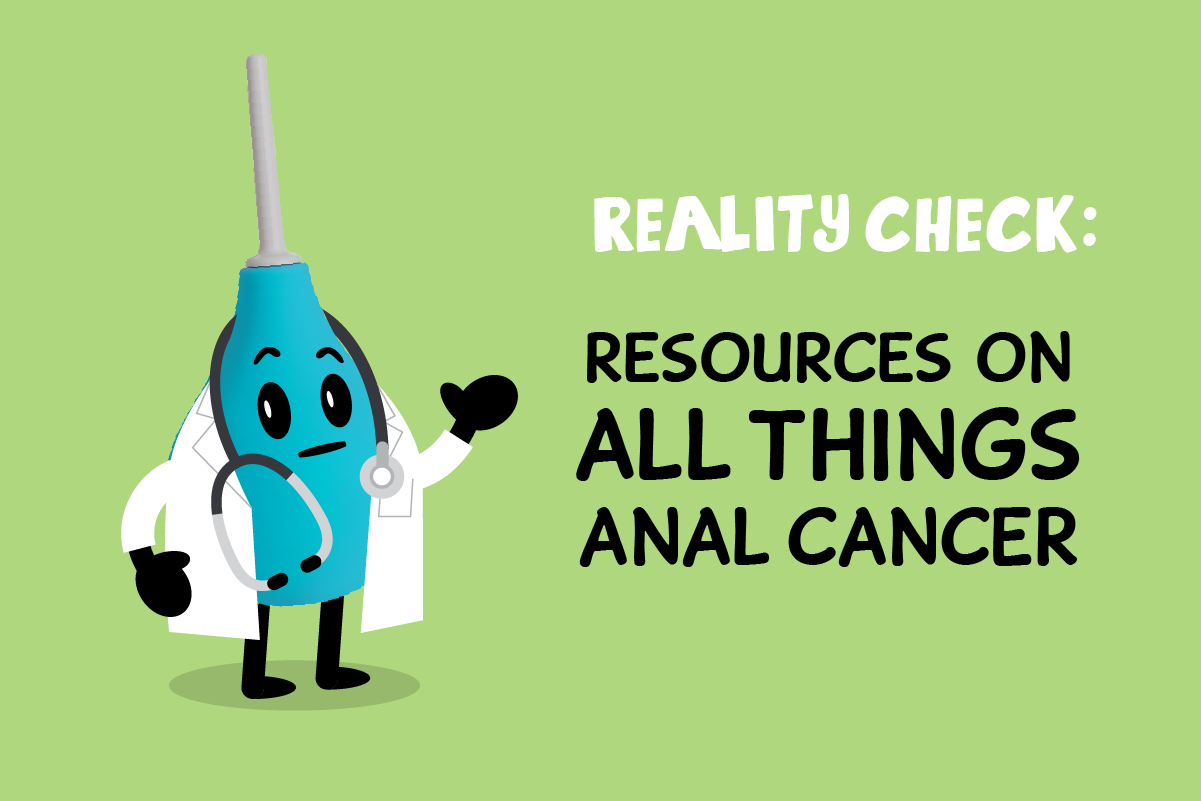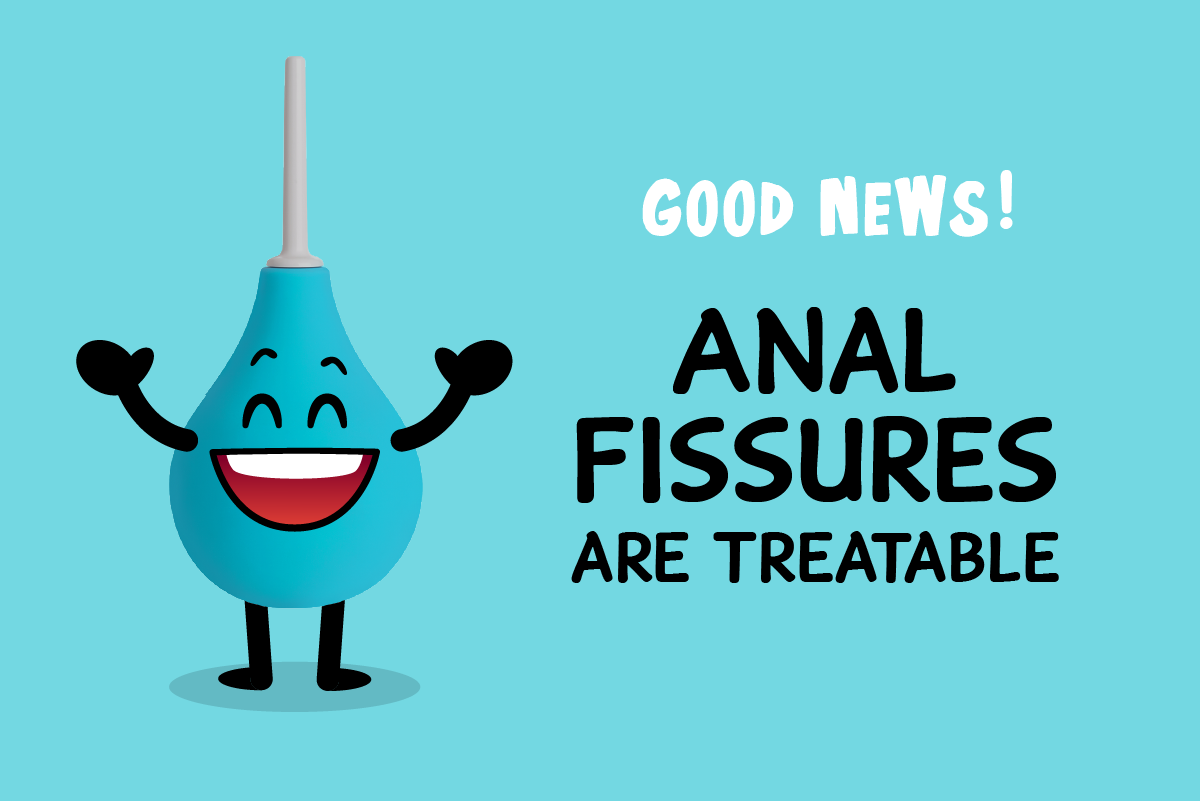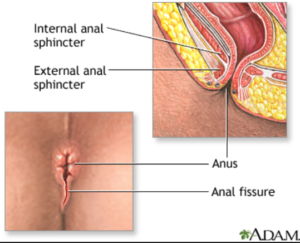Top tips for more pleasurable bottoming
For all of you out there who have never bottomed because you thought your partner’s penis was “too big,” or that anal sex was too painful with any partner, or that “I just can’t do it”—there’s something you should know.
Bottoming can (and should) feel amazing—and there’s a lot you can do to improve your experience. Here’s what to know about your physical ability, how to coordinate your mind and your body, how to prepare for sex, and more.
True/False quiz about the way your butt works
Here’s a quick True/False quiz about pelvic health and anatomy. How many answers do you know?
- My external sphincter (butt hole) can stretch/relax
- I get to control when my external sphincter stretches/relaxes
- I can squeeze my external sphincter muscles anytime I want to
- My anal passage is too small to bottom
- Breathing helps my anus relax
- There is always feces (poop) just inside my external sphincter
- I cannot bottom if I didn’t douche
Were there any you weren’t certain about? We’ll cover each of these ideas in this article. And, the answers to the quiz will be at the end.
The anatomy of your butt
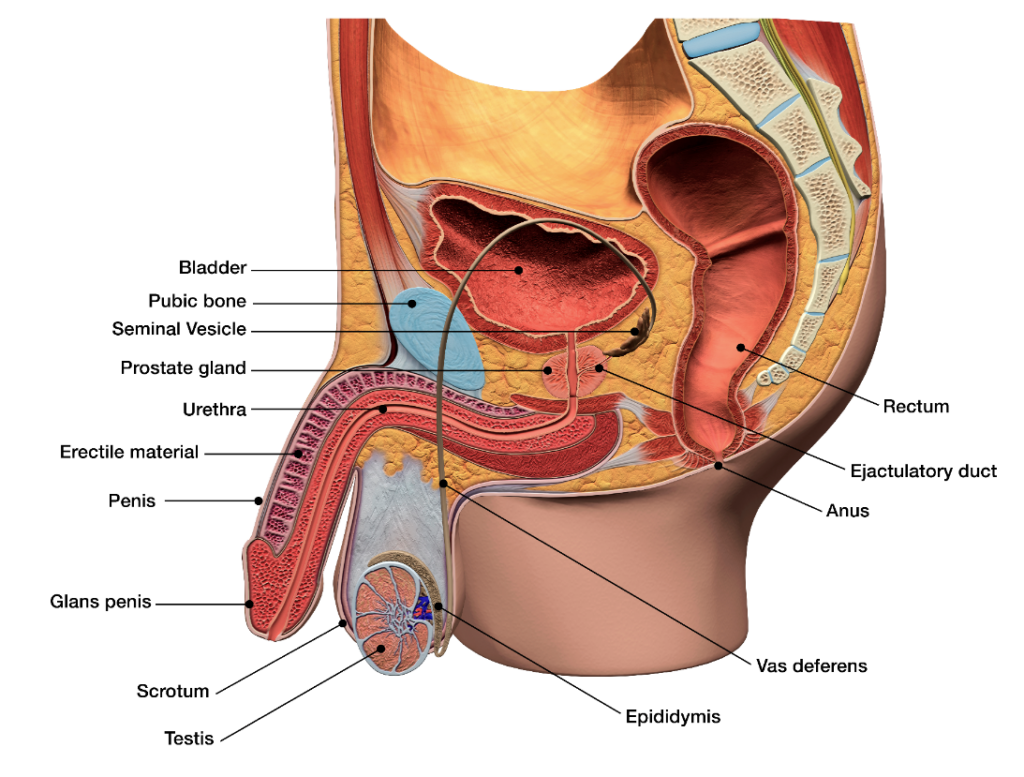 Being informed about your anatomy—knowing where things are located in your body—is an important first step for anyone having anal sex.
Being informed about your anatomy—knowing where things are located in your body—is an important first step for anyone having anal sex.
During anal sex, the penis (or dildo, or whatever) is inserted into the anus, past the external and internal sphincter muscles, and into the rectum. The rectum is connected to the sigmoid colon, which is where poop is collected and stored by your body before you are ready to take a poop.
It can take 2-10 hours until it fills up and you have to defecate. That means there’s quite a bit of time in between when you eat and when your colon fills (although there are several factors that may affect this).
External and internal sphincters: relaxing & stretching
When we talk about stretching the muscles for anal sex… what muscles are we talking about?
The external and internal sphincters (your butt hole) need to stretch open, or relax, to allow entry. You can control your external sphincter (skeletal muscle) consciously, while the internal sphincter (smooth muscle) is not under voluntary control, and may need some additional coaxing to relax. This is one difference between smooth muscle versus a skeletal muscle.
When people experience pain during anal sex, a simplified reason may be that the external sphincter is not relaxed before their partner’s penis goes in.
Nerve endings
Nerve endings produce sensations through light touch or pressure by transmitting information from an external stimulus to your brain. Around your anus, there are many nerve endings that can produce pleasure (or pain).
Foreplay can help you begin enjoying the sensations around your anus, and also help to relax your sphincter.
Try this exercise at home: When you’re alone or with a partner, use light touch or feathering around your anus to help relax. Use different types of touch, different types of pressure, and explore what feels good. Keep going for as long as you enjoy it.
Some people can be overly sensitive around their anus, and can benefit from desensitization exercises. To help desensitize, apply deep, broad pressure (a flat hand) around your anus to help calm your nerve endings down first. Then lighten up the touch, like above, and see if you can ease your mind and learn to enjoy the touch around your anus.
The pelvic floor
The term “pelvic floor” is most often used when speaking with women around issues related to pregnancy. Everyone has a pelvic floor, however, and it is intricately linked with how you pee, how you poop, your “core stability,” and erectile function (for people with a penis). The pelvic floor itself refers to the muscles that support the organs in the pelvis.
Will most people feel the muscles in the pelvic floor? Not likely. But just as you feel the motion of your knee extending (this sense of your body moving is called kinesthetic awareness or proprioception) and can identify your quadriceps performing that motion, you can become aware of the muscles of the pelvic floor.
The pelvic floor has 3 states of motion: neutral, contracted or lifted (often known as a Kegel), and bearing down. These are also associated with different states of mind: very relaxed, normal day-to-day, and high stress or anxiety.
When preparing for anal sex and bottoming, it’s best for to be relaxed—and to also begin to play with constriction, relaxation and bearing down with the pelvic floor muscles.
The shape of your rectum
Your rectum isn’t a straight tube—there’s a bend in your rectum called the “anorectal angle.” Imagine for a minute a long balloon that is twisted at a 90-degree angle about 10 centimeters from the end of it. This is the shape of your rectum, that allows poop to be held back until you’re ready to go to the bathroom.
During anal sex, it’s best if the anorectal angle relaxes slightly so that the rectum becomes more linear. Help make this happen by using your pelvic floor muscles to bear down during sex.
Your rectum: Is there poop in it?
One thing people assume is that there is feces (poop) just inside their internal sphincter (their butt hole) in their rectum. Generally, this is false! Your poop is stored in your colon until you’re ready to use the bathroom. When you’re sitting on a toilet, poop travels from your colon through the rectum and out your anus. Some people still prefer to douche their rectum before anal sex (more on this later), but you should know that even if you don’t douche there may not be any poop (depending on the consistency) in your rectum.
If you’re going to be having anal sex, I think it’s important to be comfortable with the idea that yes, shit, comes out of your butt. If you’re afraid of that idea, you can stick with oral sex or you can work on getting comfortable with the idea that it might happen. If you’re overly worried about poop showing up during sex, you’re going to shock your system into an anxiety-ridden state that can negatively affect the sex you’re having (I know this because it used to happen to me).
Your state of mind
Our anal control consists of both voluntary and involuntary muscles. If you’re afraid, anxious, worried or fearful, your sympathetic (“fight or flight”) nervous system takes over—which can result in a very negative experience your body will remember.
This is why it’s important to take time to relax, prepare yourself, and get into the right frame of mind so that you’ll enjoy the sex you have.
We’re all different
Keep in mind that our bodies are all built differently. It’s very common as a practitioner to see minor variations in anatomy without blinking an eye. IT IS NORMAL. My anus is in a slightly different position than yours. My prostate angle is different than the guy to my right. My flexibility is different than the person to my left. You get the picture. This means that we all may enjoy slightly (or vastly) different sex positions and ways of bottoming. Cookie cutter sex doesn’t always work. Be willing to communicate and try different positions with your partner until you figure out how to enjoy it together.
Getting ready for entry
Now that we’ve covered our anatomy, let’s talk about getting into position and getting ready to bottom.
Some people like to douche before anal sex. It usually takes several hours for food to migrate into the lower bowels, so don’t worry if you’ve eaten just before you want to douche. Unless you have an irritable bowel, food won’t be coming out too soon. Keep in mind that caffeine and foods high in fiber can accelerate mobility to the lower bowels, though. Leave some time before sex (maybe an hour) if you’re going to douche.
We’ve already talked about relaxation. The mind body connection is vital in creating positive experiences, so being aware of what state your mind is in will express how your body reacts. It’s best if you are fully relaxed—and that includes your anus. Taking deep breaths can help, but mostly, trust with your partner is paramount.
Placing some lubrication around the external sphincter can reduce the risk of tearing. (Tearing can increase risk of HIV and STI transmission.) Lube can also help with comfort!
As your top begins inserting, bear down. What, what?!
That’s right. Push out as your top pushes in. When you bear down through your pelvis without tightening your external sphincter (this is where the pelvic floor muscle control comes into play), it will allow your anorectal angle to be more linear because your pelvic floor muscles will be relaxed. If your partner has a bigger or thicker penis or dildo, continue bearing down until you feel comfortable. Bearing down allows the muscles to elongate and adapt to changing sizes. The top will feel less resistance and it will be easier for them to enter you.
The rest is easy as long as it’s enjoyable. Stay relaxed and enjoy the ride the best you can!
Change positions as much (or as little) as you’d like. Remember, you now know how to control your external sphincter muscles and your pelvic floor muscles, so you can control the pressure around your partner’s penis at any time. What I mean by this, is that you can constrict their penis and apply a pressure from within (at the internal sphincter with a light Kegal) and also more near the base (via the external sphincter with a firmer Kegal). Vary the tempo and duration of the contraction as he penetrates you and sex can be elevated to a new experience!
True/False quiz answers
- My external sphincter (butt hole) can stretch/relax: True
- I get to control when my external sphincter stretches/relaxes: True
- I can squeeze my external sphincter muscles any time I want to: True
- My anal passage is too small to bottom: False
- Breathing helps my anus relax: True
- There is always feces (poop) just inside my external sphincter: False
- I cannot bottom if I didn’t douche: False






